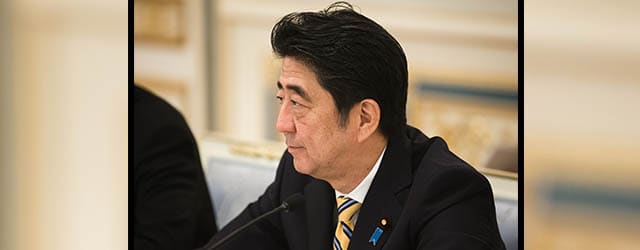Despite a less-than-stellar performance at the helm of the country, Japanese prime minister Shinz Abe was reelected in September to a second three-year term as the president of his Liberal Democratic Party.

In a show of strength, Abe ran unopposed for the job. However, some observers attribute this feat more to the lack of credible alternatives than to his successes as the head of government since 2012. Abe’s signature economic program, popularly known as Abenomics, has so far yielded only modest results, and his drive to reform Japan’s pacifist Constitution has made many Japanese voters uncomfortable. Nevertheless, all indications are that Abe is here to stay.
“At this point in time, there is really nobody within the LDP who has the stature to take him on,” says Tokyo-based Robert Dujarric, director of the Institute of Contemporary Asian Studies of Temple University’s Japan Center. “This reflects his status as the only game in town, but it doesn’t necessarily mean he is good.” Not only does Abe have a hold on the internal politics of his party, he also remains largely unchallenged at the national level. “The LDP has a very strong lead against opposition forces that are in disarray,” says Martin Schulz, a senior research fellow at the Fujitsu Research Institute in Tokyo. “He can secure this position for the LDP as long as he does not venture into too controversial structural reforms or another financial crisis breaks.”
Given his seeming iron grip on power, critics say Abe has been surprisingly timid in his policies, particularly those tackling labor market constraints, from women’s employment to immigration. “You would expect that a man who has such strong political position would have taken advantage of it to push for very radical programs,” says Dujarric. “The real problem with Abe is that he hasn’t been ambitious enough.”
But his cautious approach appears to be working, at least at the voting booths. As such, it is hard to imagine that much will change in the months ahead. “This does not matter as long as Abe and the LDP manage to get their candidates elected,” says Schulz.



